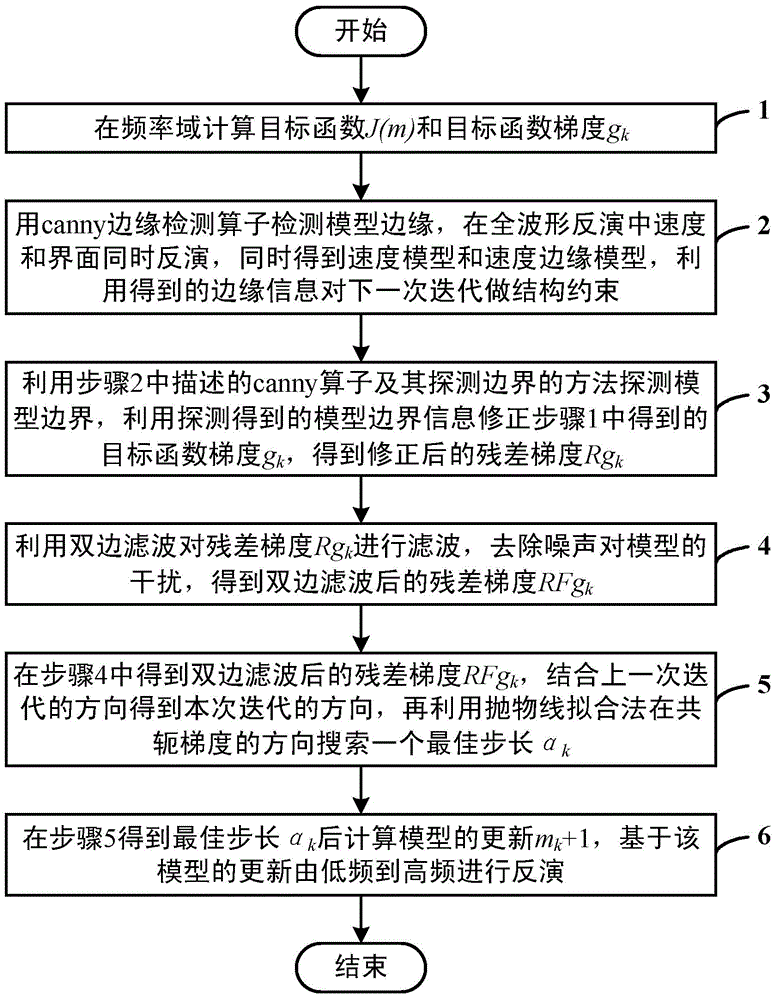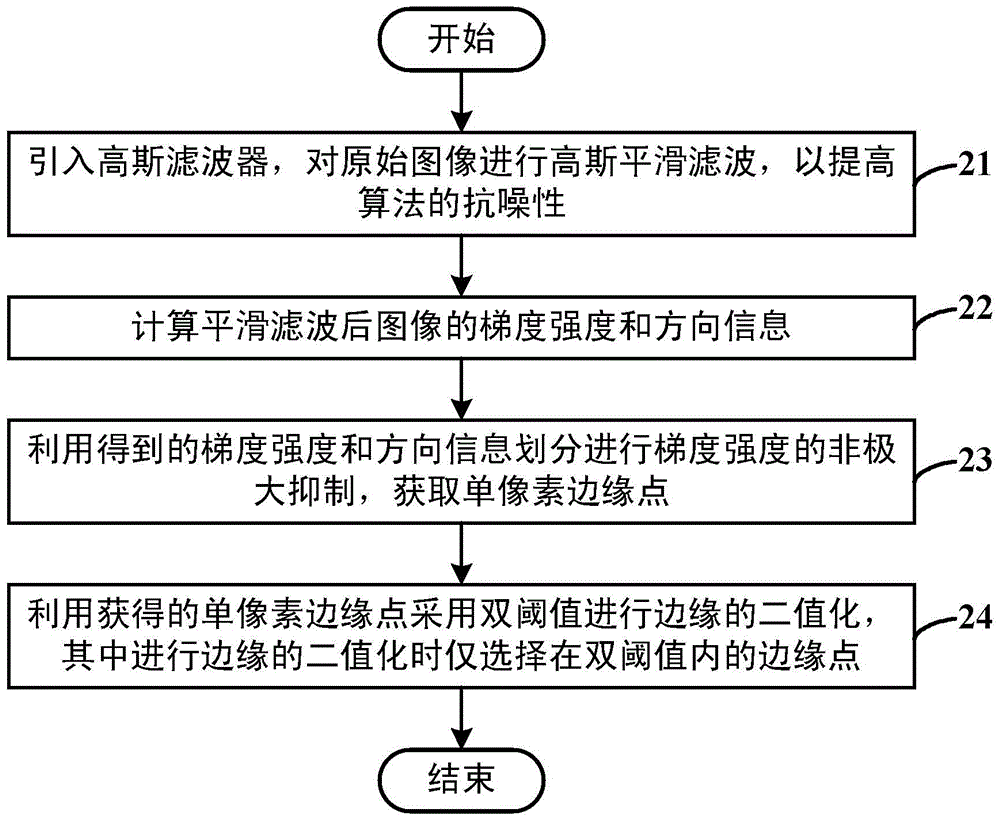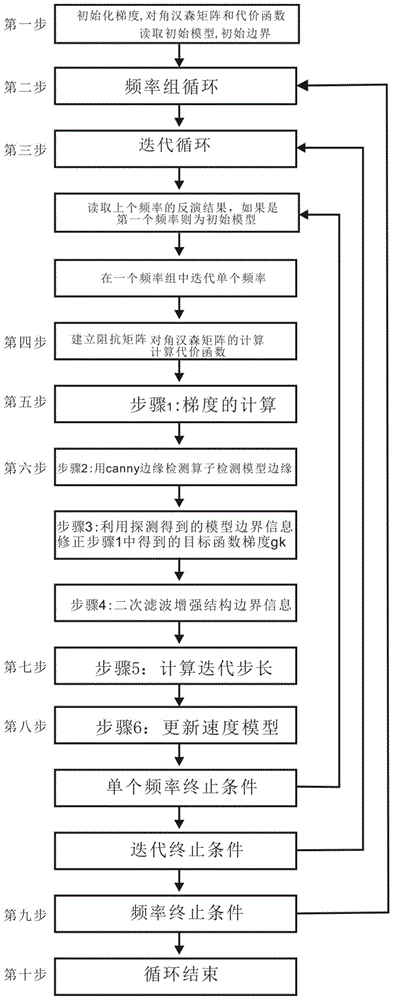A fast method for edge-guided and structurally constrained full waveform inversion
A full-waveform inversion, structural constraint technology, applied in seismic signal processing and other directions, which can solve problems such as edge information and structural information ambiguity, model results and boundary damage.
- Summary
- Abstract
- Description
- Claims
- Application Information
AI Technical Summary
Problems solved by technology
Method used
Image
Examples
Embodiment
[0127] Such as image 3 as shown, image 3 It is a flow chart of a fast method for full waveform inversion based on canny edge detection operator and bilateral filtering edge guidance and structural constraints according to an embodiment of the present invention, and the method includes the following steps:
[0128] First there is an initial velocity model m0:
[0129] The first step is to select the optimal inversion frequency, and read the initial model, inversion parameters and other parameters;
[0130] In the second step, the frequency (group) cycle is performed according to the set inversion frequency; the frequency (group) cycle is an iterative cycle;
[0131] The third step is to enter the iterative loop and read the shot data;
[0132] The fourth step is to use the velocity model and parameter forward modeling, in the frequency domain, to make a difference between the surface reception record and the actual shot record, and calculate the objective function value co...
PUM
 Login to View More
Login to View More Abstract
Description
Claims
Application Information
 Login to View More
Login to View More - R&D
- Intellectual Property
- Life Sciences
- Materials
- Tech Scout
- Unparalleled Data Quality
- Higher Quality Content
- 60% Fewer Hallucinations
Browse by: Latest US Patents, China's latest patents, Technical Efficacy Thesaurus, Application Domain, Technology Topic, Popular Technical Reports.
© 2025 PatSnap. All rights reserved.Legal|Privacy policy|Modern Slavery Act Transparency Statement|Sitemap|About US| Contact US: help@patsnap.com



